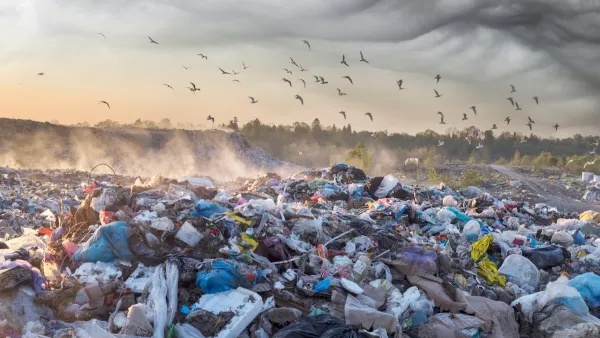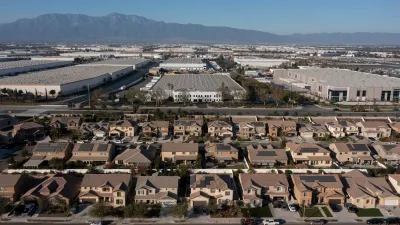Coal ash retention ponds are so numerous and so toxic that they are now considered to be a potential threat to national security.
Back in December of 2008, a coal ash pond in Tennessee burst its banks and flooded some 300 acres with an estimated billion gallons of toxic sludge. Now there are concerns that the nation's other 44 such sites also pose a grave threat to surrounding communities.
We all knew the problem was serious. Now it turns out that it's so bad that the public can't be informed where those sites are. According to the Huffington Post,
"the Department of Homeland Security has told Sen. Barbara Boxer (D-Calif.) that her committee can't publicly disclose the location of coal ash dumps across the country.
The pollution is so toxic, so dangerous, that an enemy of the United States -- or a storm or some other disrupting event -- could easily cause them to spill out and lay waste to any area nearby."
FULL STORY: Coal Ash Spills Too Dangerous To Reveal To Public, Says DHS

Planetizen Federal Action Tracker
A weekly monitor of how Trump’s orders and actions are impacting planners and planning in America.

Maui's Vacation Rental Debate Turns Ugly
Verbal attacks, misinformation campaigns and fistfights plague a high-stakes debate to convert thousands of vacation rentals into long-term housing.

San Francisco Suspends Traffic Calming Amidst Record Deaths
Citing “a challenging fiscal landscape,” the city will cease the program on the heels of 42 traffic deaths, including 24 pedestrians.

Amtrak Rolls Out New Orleans to Alabama “Mardi Gras” Train
The new service will operate morning and evening departures between Mobile and New Orleans.

The Subversive Car-Free Guide to Trump's Great American Road Trip
Car-free ways to access Chicagoland’s best tourist attractions.

San Antonio and Austin are Fusing Into one Massive Megaregion
The region spanning the two central Texas cities is growing fast, posing challenges for local infrastructure and water supplies.
Urban Design for Planners 1: Software Tools
This six-course series explores essential urban design concepts using open source software and equips planners with the tools they need to participate fully in the urban design process.
Planning for Universal Design
Learn the tools for implementing Universal Design in planning regulations.
Heyer Gruel & Associates PA
JM Goldson LLC
Custer County Colorado
City of Camden Redevelopment Agency
City of Astoria
Transportation Research & Education Center (TREC) at Portland State University
Jefferson Parish Government
Camden Redevelopment Agency
City of Claremont





























